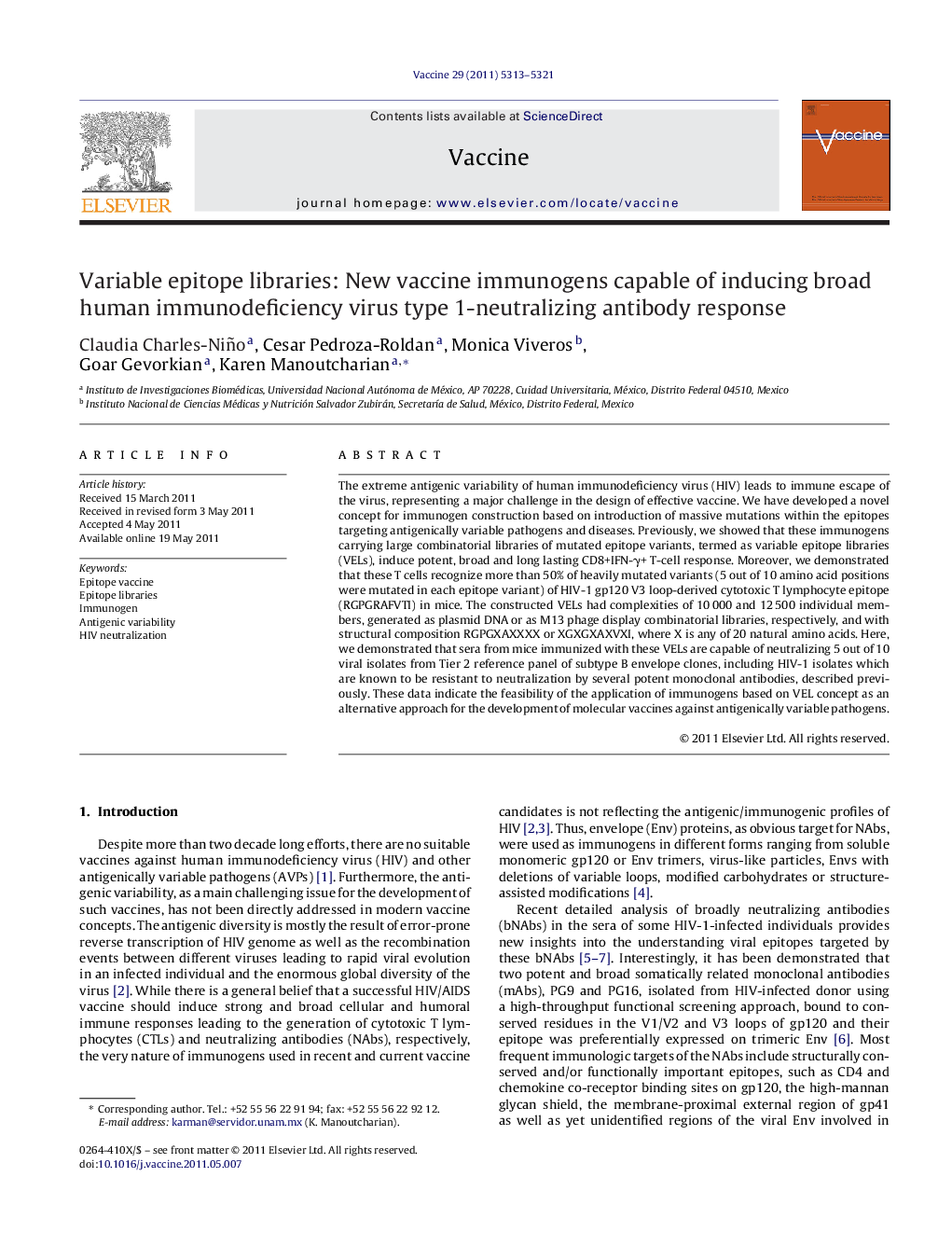| Article ID | Journal | Published Year | Pages | File Type |
|---|---|---|---|---|
| 10969068 | Vaccine | 2011 | 9 Pages |
Abstract
The extreme antigenic variability of human immunodeficiency virus (HIV) leads to immune escape of the virus, representing a major challenge in the design of effective vaccine. We have developed a novel concept for immunogen construction based on introduction of massive mutations within the epitopes targeting antigenically variable pathogens and diseases. Previously, we showed that these immunogens carrying large combinatorial libraries of mutated epitope variants, termed as variable epitope libraries (VELs), induce potent, broad and long lasting CD8+IFN-γ+ T-cell response. Moreover, we demonstrated that these T cells recognize more than 50% of heavily mutated variants (5 out of 10 amino acid positions were mutated in each epitope variant) of HIV-1 gp120 V3 loop-derived cytotoxic T lymphocyte epitope (RGPGRAFVTI) in mice. The constructed VELs had complexities of 10 000 and 12 500 individual members, generated as plasmid DNA or as M13 phage display combinatorial libraries, respectively, and with structural composition RGPGXAXXXX or XGXGXAXVXI, where X is any of 20 natural amino acids. Here, we demonstrated that sera from mice immunized with these VELs are capable of neutralizing 5 out of 10 viral isolates from Tier 2 reference panel of subtype B envelope clones, including HIV-1 isolates which are known to be resistant to neutralization by several potent monoclonal antibodies, described previously. These data indicate the feasibility of the application of immunogens based on VEL concept as an alternative approach for the development of molecular vaccines against antigenically variable pathogens.
Related Topics
Life Sciences
Immunology and Microbiology
Immunology
Authors
Claudia Charles-Niño, Cesar Pedroza-Roldan, Monica Viveros, Goar Gevorkian, Karen Manoutcharian,
